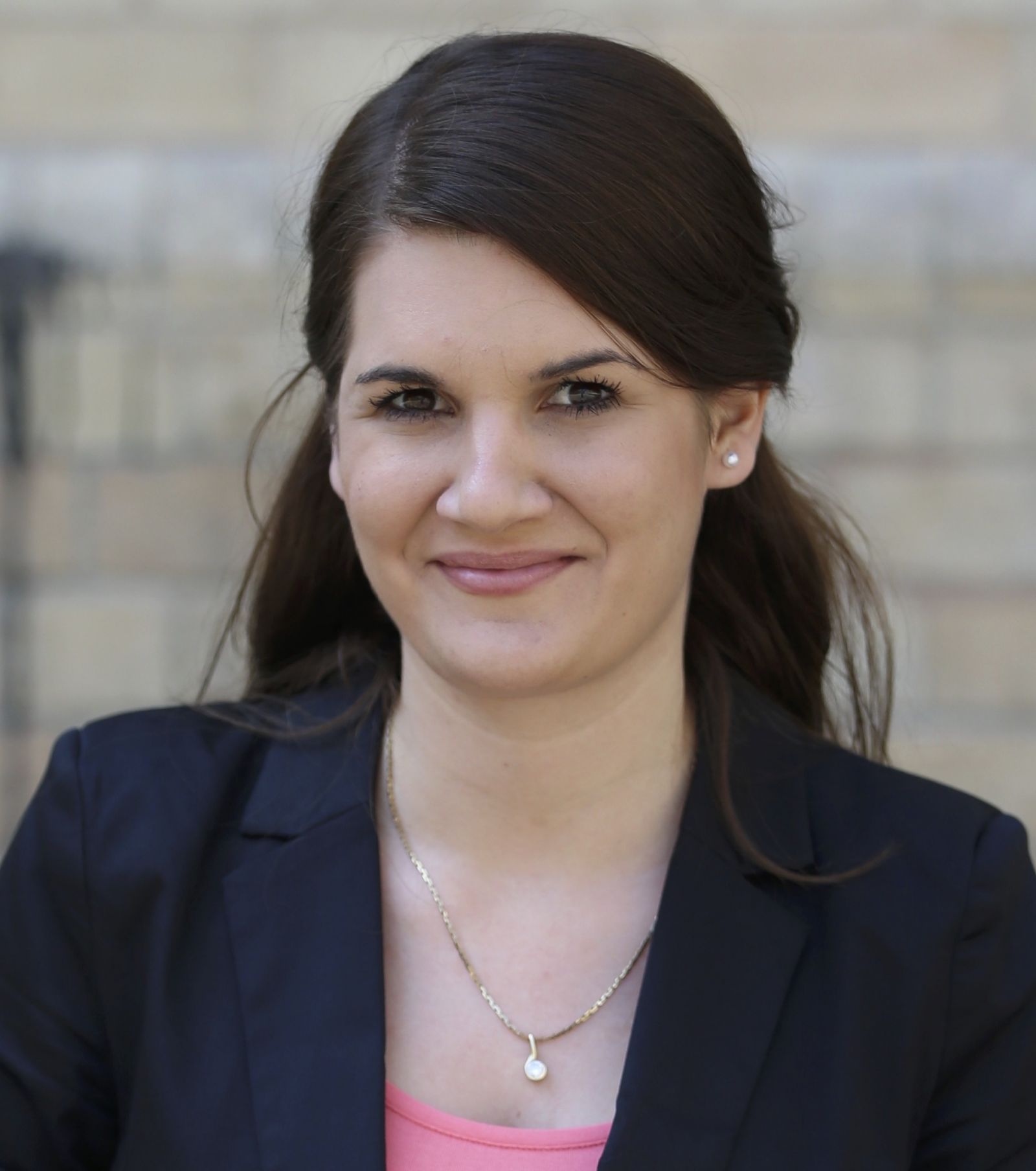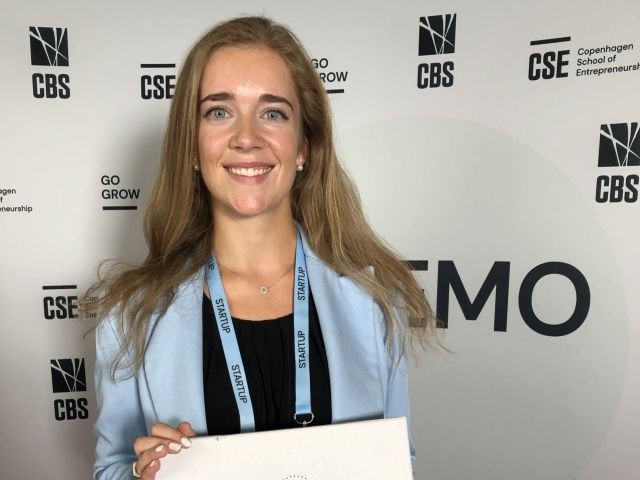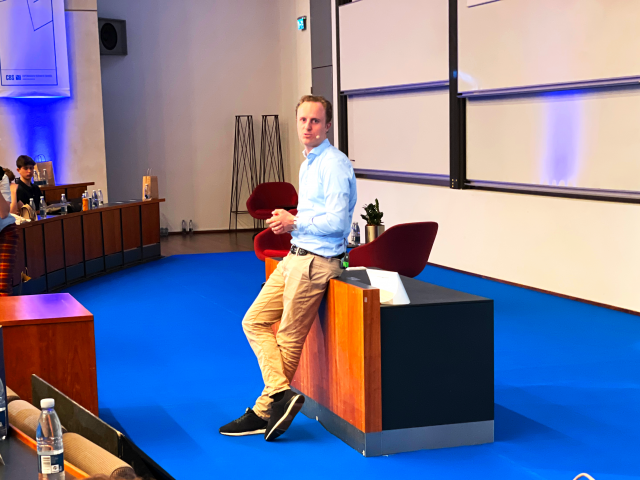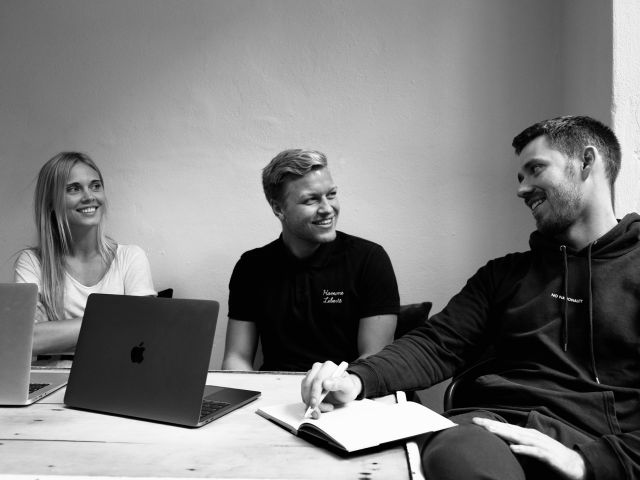Choose the right crowdfunding strategy if you want to succeed

Photo: Shutterstock
When raising money through crowdfunding, you must be aware of your strategy. If you want the local community to get involved and benefit from your product and sales, one strategy beats the others by far. Learn which strategy to use for different purposes here.
In recent years, crowdfunding has increased in popularity among new ventures aiming to raise money.
Instead of having to secure large investments from individual investors, the online crowdfunding platforms give new businesses access to a multitude of people nationally and internationally who can donate small or large amounts to the companies to help them succeed.
Assistant professor Madeleine Rauch from the Department of Strategy and Innovation at CBS has been part of a research project studying different strategies used by start-ups to get their message out and raise money through crowdfunding.
Their findings were recently published in the journal Strategic Organization.
“We found that companies usually take one of two of approaches when communicating their visions on crowdfunding platforms. Either they use what we call the circular strategy if they want to give back to their local community, or they use what we refer to as the cumulative strategy and focus more on funds and their product,” Madeleine Rauch says.
Both strategies work well in their own rights, but it’s important to choose the one that suits your company to raise as much money and awareness about your company as possible.
The circular strategy is key for gaining local support
Companies with strong ties to a community should use the circular strategy to emphasize this aspect and underline how the members of the community will benefit from their business.
Perhaps the owners live in the area and went to school there.
“If you were to apply this to a Danish context, you would emphasise how the community in Frederiksberg would benefit if you opened a food truck in front of CBS, e.g., that people could try a different type of cuisine, having access to take-away close by etc.,” says Madeleine Rauch.

A food truck is only one example of a business with strong ties to the community.
Other examples could be a roof-top garden where neighbours can buy organic food, and a brewery with locally brewed craft beer that becomes a gathering point for the local community.
In general, 35% of the money collected via crowdfunding by the companies using the circular strategy came from the local community.
For the companies with a cumulative strategy, only 4% of the money raised to fund their products came from their local community. Instead, they received money from national or international supporters.
Crowdfunding can raise awareness
However, money was not the only benefit for companies using the circular strategy.
“Many of the start-ups using the circular strategy also used crowdfunding campaigns to raise awareness, create media attention and involve the local community in their projects, for example, if they were looking for volunteers for their start-ups,” says Madeleine Rauch.
CBS students should definitely mention their ties to CBS as it has a great reputation both in Denmark and abroad. It gives you legitimacy that you have studied here
Madeleine Rauch, Assistant professor Madeleine Rauch from the Department of Strategy and Innovation at CBS
Besides becoming volunteers, the start-ups also got the community involved by inviting them to a gala opening, for example, if they donated more than a certain amount of money.
Or their name would be displayed on a plaque on a company’s premises.
Cumulative strategy focuses on the product
If your business is not as rooted in a specific location, you are much better off using the cumulative strategy and focusing on your product and how it can enhance the lives of potential supporters.
For example, companies that have a specific product such as a board game, a new gadget, or a tech product.
“If a company using the cumulative strategy mentions anything about a local connection to a small community it is usually in relation to universities or business incubators that represent communities on a larger scale. CBS students should definitely mention their ties to CBS as it has a great reputation both in Denmark and abroad. It gives you legitimacy that you have studied here,” says Madeleine Rauch.
Even though raising money is always an important reason for companies with a cumulative strategy, the study also concludes that companies have several other motives for starting crowdfunding campaigns.
“For the companies with the cumulative strategy, raising money would not always be the sole purpose of being on the platform. Some use it to test whether there is a market for their product at all,” Madeleine Rauch says.
An example of that presented in the study is an MIT student who developed a pencil containing seeds. Once the pencil was so small that it was no longer usable, it could be planted.
The student used the crowdfunding campaign to find out whether there was actually a market for such a pencil and if so, who would be interested in it.
Crowdfunding in a Danish context
If you are keen on starting a crowdfunding campaign, Madeleine Rauch thinks it’s important that you add a Danish twist to your message.
“The Danish culture is a little more subdued and might be less vocal about achievements than in a U.S. context. Depending on your target group and community, when making a crowdfunding campaign, it might make sense to carefully consider the tone of your video and message,” Madeleine Rauch says.
Several industries, including restaurants and catering are very active start-up industries and ecosystems in Copenhagen
Madeleine Rauch, Assistant professor Madeleine Rauch from the Department of Strategy and Innovation at CBS
She believes that Copenhagen is a great local community to acquire funding from.
This is especially important if you have a start-up which is more socially oriented and of importance to the local community.
“I have seen several people who have finished a master’s programme staying in Copenhagen to become entrepreneurs. Several industries, including restaurants and catering are very active start-up industries and ecosystems in Copenhagen,” Madeleine Rauch concludes.






































































































































Comments